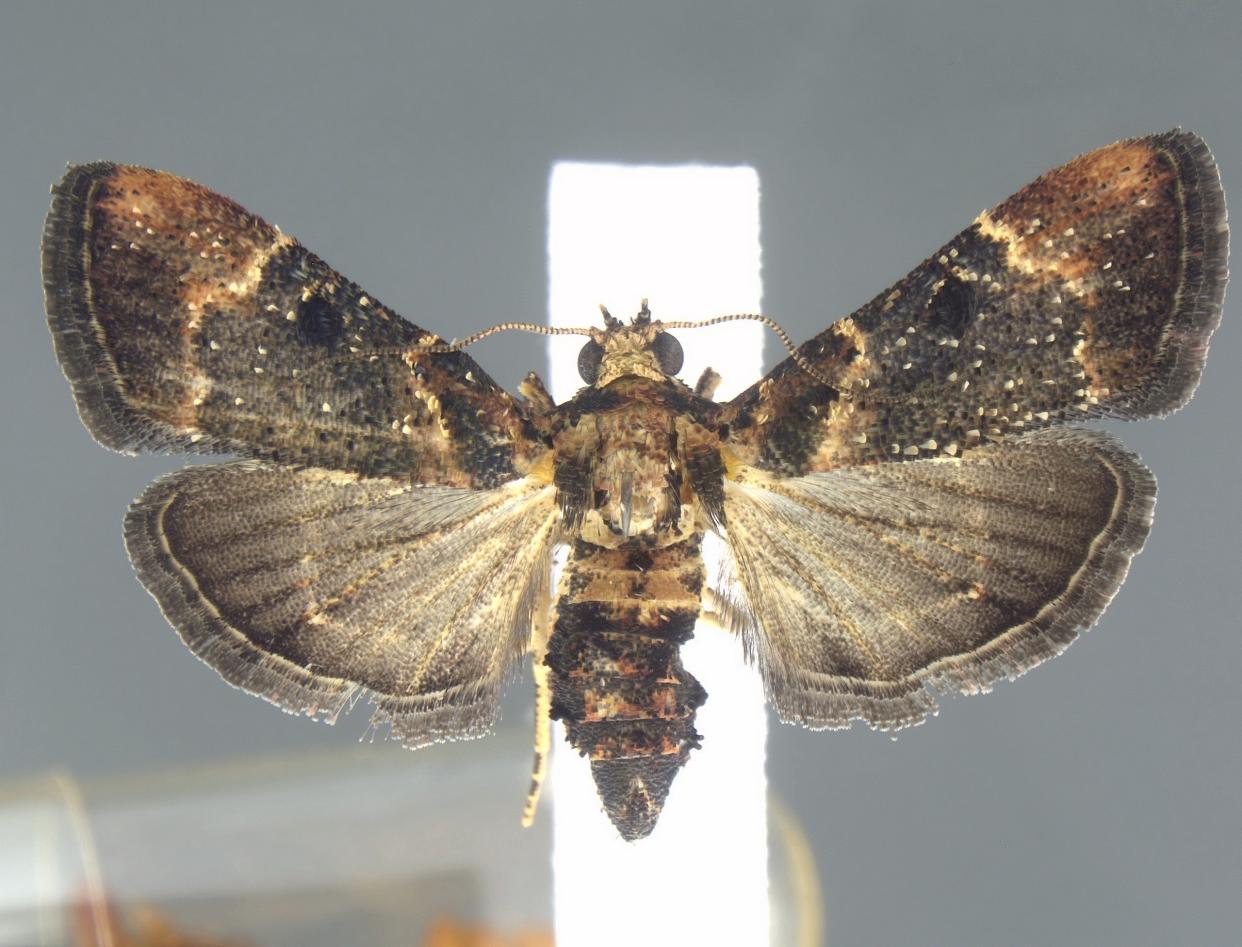Moth found by U.S. customs agents is species not seen for a century

A moth intercepted by U.S. Customs and Border Protection (CBP) agriculture specialists at Detroit Metropolitan Airport (DTW) is now considered to be the first encounter of the species since 1912.
The initial encounter stemmed from a September 2021 inspection of an arriving passenger flight from the Philippines. Agriculture specialists discovered seeds in the personal baggage of a passenger who claimed the pods were for medicinal tea.
Upon closer inspection, apparent insect exit holes were discovered in the seed pods that were intercepted by CBP agents. Moth larvae and pupae were collected for further analysis, and while in quarantine, several of the pupae hatched to reveal "very flashy" moths with raised patches of black setae (bristles).
Physical characteristics indicated the moths to be members of the family Pyralidae, however, genus or species were not able to be determined by agriculture specialists and specimens were submitted to the U.S. Department of Agriculture (USDA) for further identification.
A USDA Smithsonian Institution entomologist later confirmed with CBP this was the first encounter of this species of moth since it was first described in 1912.
This was also the first time that larvae or pupae associated with this species has been collected.
"Agriculture specialists play a vital role at our nation's ports of entry by preventing the introduction of harmful exotic plant pests and foreign animal diseases into the United States," said Port Director Robert Larkin. "This discovery is a testament to their important mission of identifying foreign pests and protecting America's natural resources."


